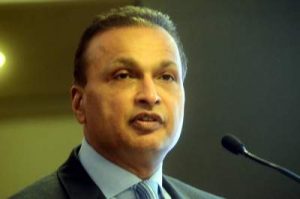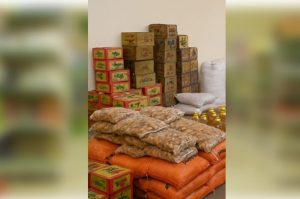Long-term capital gains tax will fund insurance, MSPs: Jaitley
New Delhi : The proposed 10 per cent tax to be levied on long-term capital gains (LTCG) alone will be able to fund both the National Health Protection Scheme (NHPS) and increased minimum support prices (MSPs) for farmers, Finance Minister Arun Jaitley said here on Friday.

At India TV Budget Conclave, Jaitley said it was a wrong assumption that small investors will be hit by LTCG tax.
“In reality, there were foreign financial institutions and large corporates who were gaining from LTCG. Last year alone, the profit made from LTCG was Rs 367,000 crore, and this was exempted from tax. This year, we have imposed 10 per cent tax, and this alone can fund both the MSP hike and national medical insurance scheme.”
He said that he did realise that there were risks in it, but such difficult decisions “have to be taken”.
On NHPS, Jaitley said the scheme was both a “sewa” (service) and “vyavsay” (business).
He disclosed that during the NITI Aayog public health presentation given to the Union government before the Budget, it was proposed to make the scheme universal, but “we decided to take the initial step with 10 crore poor, vulnerable families”.
“The cost component could range from Rs 7,000-10,000 crore. In a Rs 24-25 lakh crore Budget, I have kept aside Rs 2,000 crore for this scheme and shall provide more funds when necessary,” the Finance Minister said as he refused to react to his predecessor P. Chidambaram’s remark that the proposed healthcare scheme was a “jumla” (gimmick).
Asked about the availability of hospitals for implementing the ambitious healthcare scheme, Jaitley said: “Mostly Tier-1 and Tier-2 cities have large number of hospitals, but districts need 400-500 bed hospitals.
“Once the funding mechanism is decided, we hope others would come forward. This is ‘sewa’ (service) and ‘vyavsay’ (business) both. This scheme will be implemented with the help of state governments.”
Jaitley reminded that the GST Council was a model of cooperative federalism, where both the Centre and states sit together and decide taxation rates.
IANS







